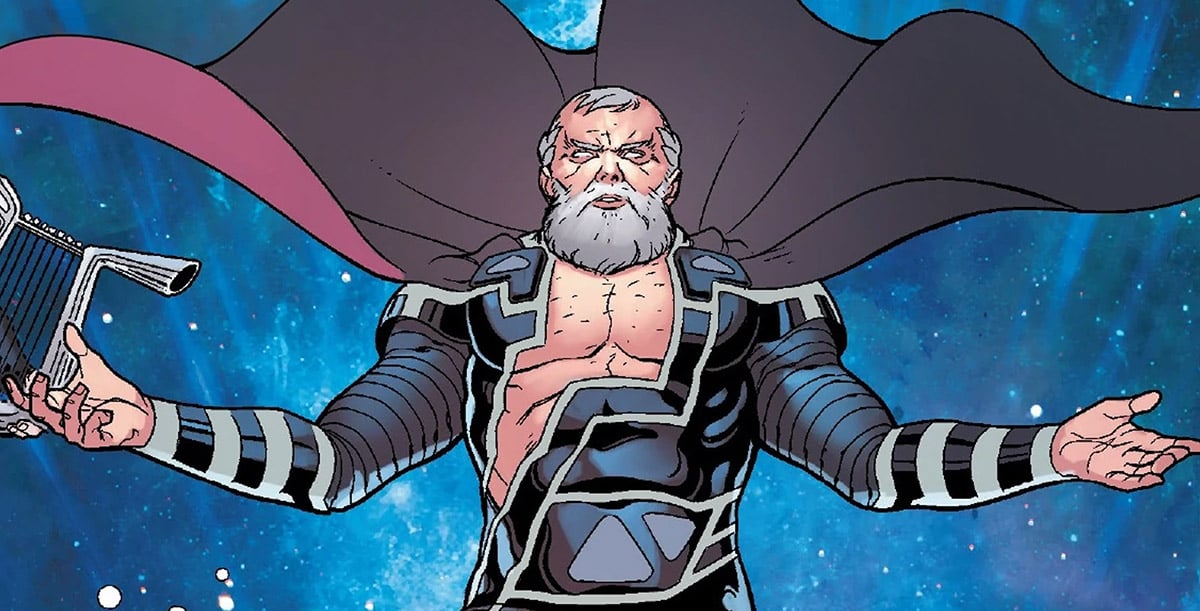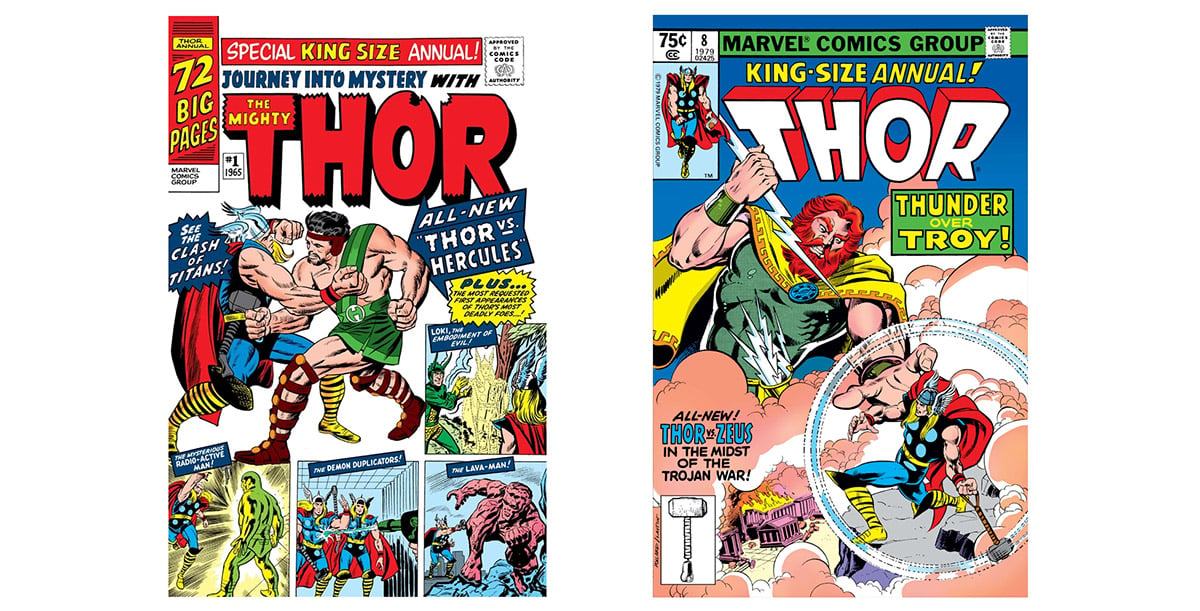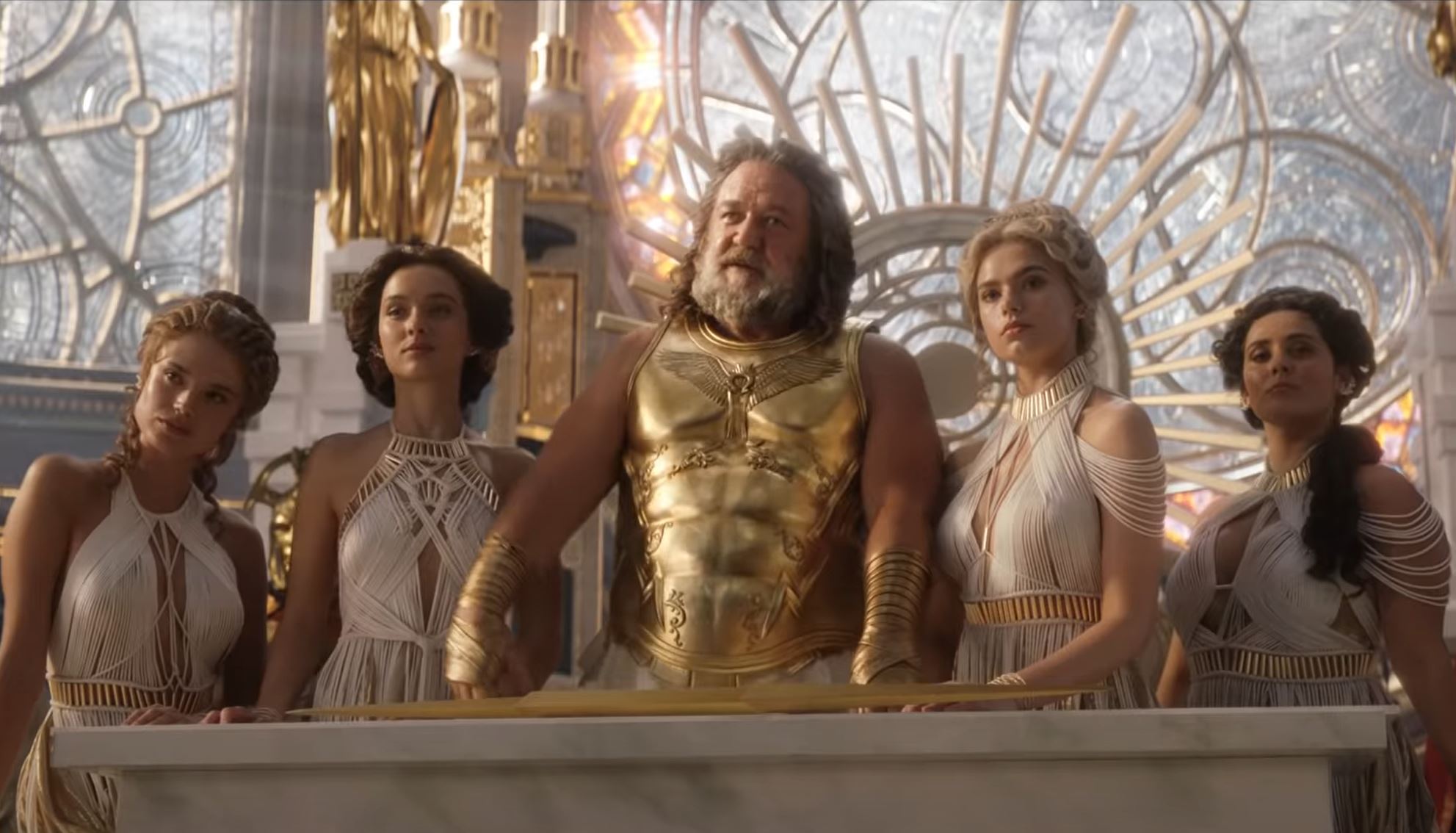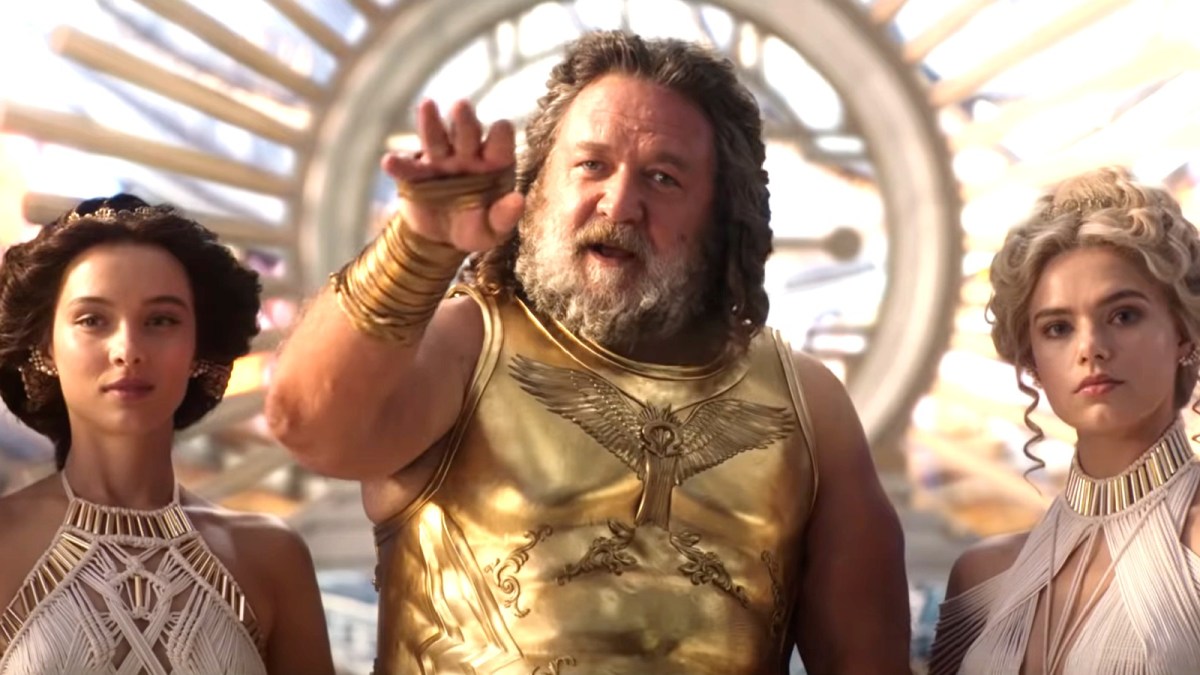No god is safe in Thor’s fourth solo movie. Gorr the God Butcher is set to make his debut in the Marvel Cinematic Universe (MCU) with Thor: Love and Thunder, and immortality is going to mean diddly squat when the villain, played by Christian Bale, gets his hands on the cosmos’ supposedly most powerful beings. With the name Love and Thunder, it was never going to be a quiet murder mystery.
The ‘Love’ of the title is provided by Thor Odinson and Mighty Thor. The latter, Thor’s ex Jane Foster, is wielding Mjölnir this time around, as the former lovers reunite after almost a decade. They’ve got the ‘Thunder’ covered as well, right? After all, Thor is statically inclined.
Over at Mount Olympus, someone thinks differently. Storm clouds are gathering.
The arrival of a superpowered killer targeting gods is enough to blow the myths and religions of Earth wide open. The original Asgard may have fallen to prophecy, but there are plenty more pantheons in Midgard. The arrival of Greek mythology to the MCU means a whole raft of new gods, including the king of the aforementioned pantheon, Zeus, are entering the fray. While Norse mythology bestowed the power and spectacle of thunder and lightning to Odin’s son, Greek myths saved it for the head of the table.
In Love and Thunder, Hemsworth will meet his counterpart (sorta), the Greek god of thunder and lightning played with a remarkable Mediterranean accent by Russell Crowe. Sparks are bound to fly.
Ancient mythology is more than a precursor to the comic books of superhumans and cosmic battles. Its ‘superheroes’ are ready-made to drop into multiverses of new gods, and comic creators caught on quickly. Classical gods first appeared in the Golden Age of comic books, with publishers like Marvel and DC Comics building them into their stories ever since. Zeus even predates Marvel Comics — he first appeared in the pages of Venus, a romantic title from Marvel’s precursor, Timely Comics.
The Rise of Zeus

In mythology, Zeus behaves a lot like many other Gods. He was an all-powerful ruler, prone to occasional recklessness, sporadic wisdom, and countless affairs he had to keep secret from his wife, Hera. Zeus rose to his powerful position by bringing order to a chaotic universe when he and his brothers Hades and Poseidon overthrew their father, Cronus. By defeating the titans, the usurpers became gods.
Zeus subsequently created a new order of luck, favor, indifference, and cruelty. The changeable gods of Mount Olympus, initially home to 12 deities, looked down upon mortals, spurring some on to greatness while testing and punishing others. The gods each had their specific qualities, interests, and responsibilities governing day-to-day activities on Earth and civilization threatening events like the decade-long Trojan War. Ancient Greece was the birthplace of democracy and home to Aristotle, Socrates, and Plato. But every inhabitant of Athens, Crete, and Sparta knew what a gathering storm meant. Zeus was angry.
The Zeus of Timely, and then Marvel Comics, broadly follows his mythological biography, although the Marvel multiverse firmly establishes these gods as powerful extraterrestrials.
Enter the Multiverse

Zeus Panhellenios, to give him his full name, was worshiped by the humans of Ancient Greece (and the Roman world for centuries) but was, in reality, the alien monarch of the pocket dimension Olympus. Much like the Asgard of Odin, Thor, and Loki, the Marvel multiverse places its gods in a firm geographical location in relation to Earth-616.
Avid watchers of the MCU will note the similarity in name between Olympus and the Eternals’ home of Olympia. Marvel traditionally places the two close together, and the comics have explored a tetchy and resentful relationship between the two races. Over the years, writers have expanded Zeus’ origins and adventures in the pages of Marvel Comics and mapped out the complicated relationship between these classical gods and the rest of the multiverse. Early on, the Greek pantheon generally went by Roman names. Zeus was Jupiter, and his demigod son, who would become increasingly important, was Hercules rather than Heracles.
Meeting Superheroes

The blending of mythology was part of the deal from Jupiter’s first Timely appearance. He played a bit part in Joe Simon and Jack Kirby’s Daring Mystery Comics #6 in 1940. American comics were understandably tackling the very real rise of evil in Europe at the time, and Simon and Kirby, who would create Captain America a year later, tested the concept with Marvel Boy. This superhero was a reborn Hercules. The demigod hero was granted a new life on Earth by his father. Oddly, Hercules had pleaded with his Jupiter to be reborn from the Norse realm of Valhalla.
During the Golden Age, Jupiter took a more significant role in Timely Comics, supporting the stories of the goddess Venus — the Roman name for the goddess of love Aphrodite, from which the romantic comic took its name. In one story from 1949, Venus relocated Olympus to the planet Venus in Zeus’ absence before boredom drove the goddess back to Earth in search of love. Furious, Jupiter reappeared and, having failed to order Venus back to Olympus, set her a typically fiendish challenge. All Venus had to do was find the perfect couple and keep them together for a week. Despite Jupiter’s best attempts to sabotage her, Venus succeeded and earned the right to stay on Earth. Jupiter wasn’t off to a winning start.
The following decade found Jupiter appearing in various capacities as Timely’s title jumped between myth-infused romance and sensationalist science fiction.
Zeus arrived at the Silver Age of Comics in 1965, refreshed under his Greek name in the pages of Journey into Mystery Annual #1. Now firmly under the banner of Marvel Comics, he arrived three years after Thor. His first action was to break up a fight between the Norse thunder god and Hercules with a well-placed lightning bolt. Since then, Zeus has had a recurring role in Marvel Comics continuity.
What do the Fates have in store for Zeus in ‘Thor: Love and Thunder’?

What could Love and Thunder have in store for Zeus? Fortunately, we don’t have to journey to the Oracle of Delphi to find out. The internet has been busy predicting how the Greek lightning-wielder will fit into the MCU.
The second trailer for Love and Thunder shows Thor imprisoned in the court of Olympus, gleefully interrogated by an over-the-top Zeus, as the Norse thunder god’s allies look on. It seems like the two won’t hit it off immediately, with Zeus, at the very least, underestimating his Norse rival. Naturally, fans have already pored over the movie merchandise revealed in the run-up to the movie’s release. The Marvel Build-a-Figure toy line give a few hints about the storyline. An interesting spiel on Tessa Thompson’s Valkyrie figure suggests conflict in New Asgard.
That could link to a blink-and-you’ll-miss-it hint that it may be Zeus causing trouble for the Asgardians in Spider-Man: No Way Home. When news reports blame Peter Parker for a series of disastrous events, a news ticker suggests someone whose name begins with ‘Z’ is causing trouble: “Political turmoil continues in new Asgard as Z…”
Logic suggests that the arrival of the successful, dedicated, and thoroughly dangerous foe Gorr will force gods together. But mythology and comics aren’t devout followers of reason, especially when events demand a sacrifice.
One popular theory is that Zeus won’t be part of the MCU for long. The god’s appearance, and potential demise, could be the gateway for a more significant Greek god to take a role in the Avengers as he has in the comics, Hercules. The death of Zeus would illustrate Gorr’s threat and motivate his demigod son, and Thor’s great rival, to get involved in the affairs of humanity.
We will find out the truth when Thor: Love and Thunder crashes into movie theaters on July 8, 2022, but one thing is sure: the Greek gods are coming.

